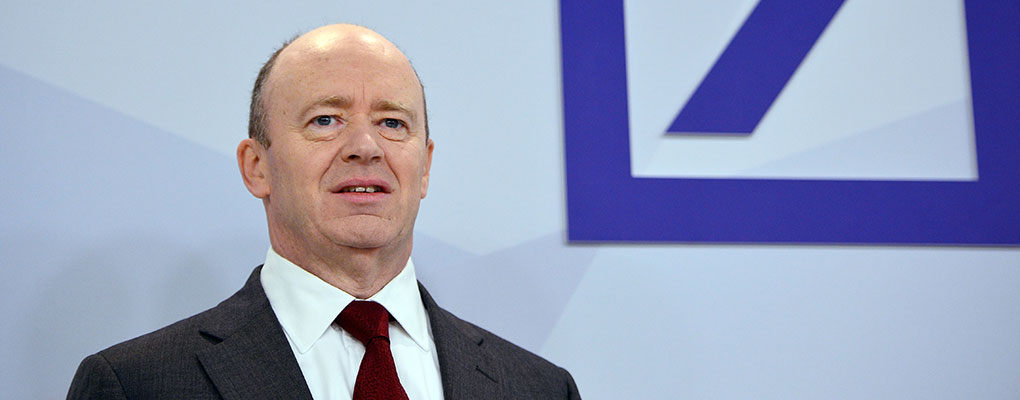
At a conference in Frankfurt, Deutsche Bank’s co-CEO, John Cryan, told onlookers that he believes bankers are still earning too much money. He added that staff bonuses should not be based on short-term profits, but rather long-term value generated in order to stop reckless behaviour.
“Many people in the sector still believe they should be paid entrepreneurial wages for turning up to work with a regular salary, a pension and probably a health-care scheme and playing with other people’s money,” said Cryan. “There doesn’t seem to be anything entrepreneurial about that except the compensation structures.”
Since taking the helm, Cryan has taken steps to reduce the size of Deutsche Bank’s securities division
“We should reflect on people’s contribution over a much longer period of time than one year,” he said. As it stands, there is a tendency to “promise to pay first and then be in the ridiculous position where the baby’s been given the candy and you’ve got the difficulty of taking it away.”
Since taking the helm, Cryan has taken steps to reduce the size of Deutsche Bank’s securities division. He is not alone, however. In fact, many European banks are doing the same in response to stricter regulations and harsher capital requirements being implemented after the financial crisis.
The co-CEO of Deutsche Bank also mentioned at the conference that he is sceptical about the merits of massive bonuses and whether performance-related pay really motivates people.
“I sit on trading floors and wonder what drives people,” he said. “I don’t fully empathise with anyone who says they turn up to work and work harder because they can be paid a little bit more, but that may be a personal view.
“I’ve never been able to understand the way additional excess riches drive people to behave differently.
“I have no idea why I was offered a contract with a bonus in it because I promise you I will not work any harder or any less hard in any year, in any day because someone is going to pay me more or less,” he added.


